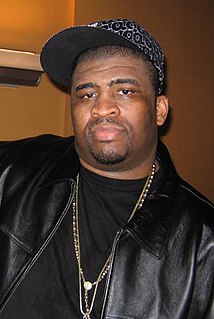A Quote by Michael Lewis
That was how a Salomon bond trader thought: He forgot whatever it was that he wanted to do for a minute and put his finger on the pulse of the market. If the market felt fidgety, if people were scared or desperate, he herded them like sheep into a corner, then made them pay for their uncertainty. He sat on the market until it puked gold coins. Then he worried about what he wanted to do.
Related Quotes
An old market had stood there until I'd been about six years old, when the authorities had renamed it the Olde Market, destroyed it, and built a new market devoted to selling T-shirts and other objects with pictures of the old market. Meanwhile, the people who had operated the little stalls in the old market had gone elsewhere and set up a thing on the edge of town that was now called the New Market even though it was actually the old market.
As a bull market turns into a bear market, the new pros turn into optimists, hoping and praying the bear market will become a bull and save them. But as the market remains bearish, the optimists become pessimists, quit the profession, and return to their day jobs. This is when the real professional investors re-enter the market.
People thought they were going to make a lot of money. And then at one point, it got too hot, and the government wanted to knock it down. Trying to get it up and then knock it down, both were a mistake. And part of the reason, some people think, is that they wanted to equitize some of their companies. A healthy stock market helps equitize companies and reduce the country's debt burden.
[People] have seen the credit market seize up. They're worried about money market funds, although the latest proposition from government should take care of that. They've seen eight percent of the bank deposits in the United States get moved very skillfully, I might say, within the last couple of weeks from institutions that they thought were fine a few months ago to other institutions. They are not wrong to be worried.
We live and breathe words. .... It was books that made me feel that perhaps I was not completely alone. They could be honest with me, and I with them. Reading your words, what you wrote, how you were lonely sometimes and afraid, but always brave; the way you saw the world, its colors and textures and sounds, I felt-I felt the way you thought, hoped, felt, dreamt. I felt I was dreaming and thinking and feeling with you. I dreamed what you dreamed, wanted what you wanted-and then I realized that truly I just wanted you
I find personally that when I go to a place where I can't get in, I feel hostility from whatever it is, a hotel, a shop, a market, a street corner where there are no curb cuts, because somebody forgot to put them in, and where I have to go two blocks to the corner to do it. A lot of the excuses are, "Well, this is an old building." That's my favorite one. "This is an old building." It's as though 50 years ago, people with disabilities did not exist. As if the disabled are a new problem. It has always been a problem.
Basically my point of view on unicorns is that private companies which have sky high valuations, it doesn't really mean anything in the real world until it's marked to market. And there's only two ways things get marked to market in venture capital: Either a company is acquired by another company for cash or marketable security, or it goes public, and then it has reporting requirements and then the market will determine the value.































